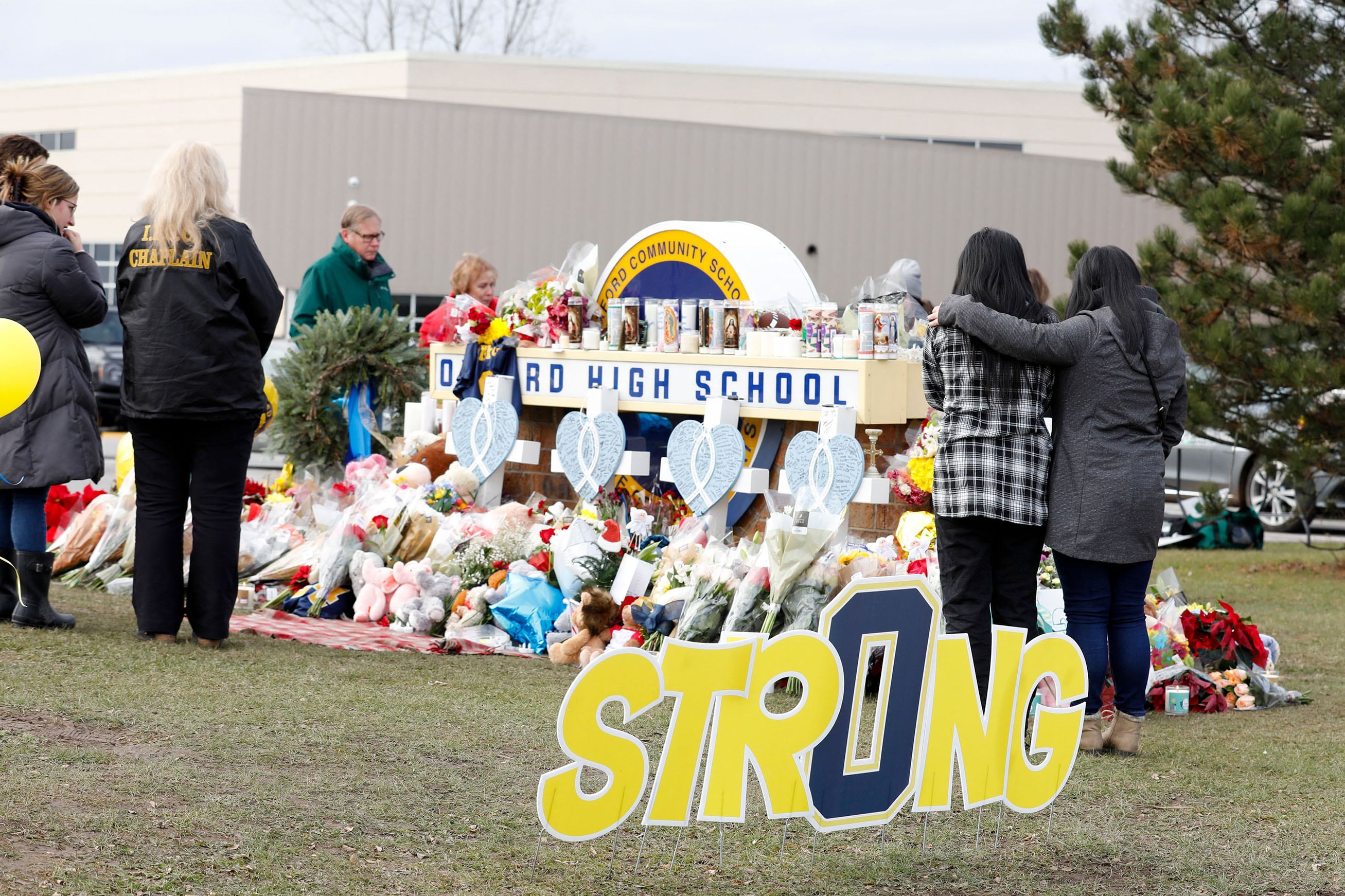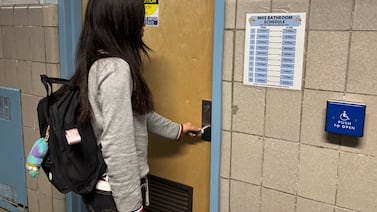Sign up for Chalkbeat Detroit’s free newsletter to keep up with the city’s public school system and Michigan education policy.
Amid a bipartisan push to improve school safety and students’ mental health, Republican lawmakers have put forward a package of bills that aims to create a comprehensive “school-community mental health system” and put additional crisis teams in schools.
The bill package cleared a legislative hurdle on Wednesday when the House Education and Workforce Committee voted to move it forward.
Last year, the legislature passed several bipartisan school safety bills that were introduced after a student shot and killed four students at Oxford High School in 2021. Those measures took lawmakers more than three years to approve, in part, because Democrats wanted to include gun reforms in proposed measures, and Republicans wanted to leave those measures out. A bipartisan House of Representatives school safety task force also researched the issues and interviewed school and public safety officials, community members, and survivors of school shootings, including Oxford, and their families.
Democrats eventually altered their proposals to gain support from Republicans.
Some of the newly introduced Republican bills touch on areas the original school safety task force agreed would be priorities: physical security, mental health, data processes, staff, and education. The bills do not address firearms and criminal justice, which were also among the original goals of the task force.
Rep. Kelly Breen, a Democrat from Novi, said in a March 26 hearing for the bills she was “alarmed” that the legwork the taskforce did and the input from school and public safety officials was not reflected in the new Republican bills. For example, Breen said the bills require hiring of hundreds of new mental health staff while schools already struggle to fill open positions.
One of the bills that moved forward this week would require every intermediate school district — or regional agencies that work with the Michigan Department of Education and local school districts to develop programs and meet goals — in Michigan to hire a mental health coordinator to develop and implement the comprehensive system. It would integrate community or faith-based mental health services in public and private schools. Few details about how this would play out in schools were available.
With state funds, the coordinator would also facilitate and deploy a behavioral health care technology platform for schools, as well as oversee and monitor Medicaid billing and the Caring 4 Students program, which partially reimburses school districts for mental health services for students who are eligible for Medicaid.
The bill would also require each ISD to have at least one emergency and safety manager to serve as a liaison between state and local school and law enforcement entities. The manager would perform risk assessments, facilitate response training with schools, and implement prevention programs.
It could cost an estimated $16.8 million in state funding for every ISD in the state to add the staff, according to a fiscal analysis of the bill. Schools would not have to meet the requirements if the state does not allocate the money to fund the positions, according to the bill.
The House Education and Workforce Committee voted to move the bill forward during a meeting Wednesday.
Republican state Reps. Nancy DeBoer, Rylee Linting, Joseph Fox, Tom Kunse, Joseph Pavlov, and Alicia St. Germain voted in favor of moving the bill to a vote in the full House. Democratic state Reps. Matt Koleszar and Regina Weiss voted against it.
Democratic state Reps. Jimmie Wilson Jr. and Erin Byrnes abstained, as did Republican state Rep. Brad Paquette.
Here’s what the other new Republican proposals would do
- Require every public school to establish its own crisis team by July 1, 2026. The team would be responsible for initiating lockdowns, helping evacuate students and staff, as well as reuniting families after a safety crisis. The teams would include the school’s principal, vice principal, a school resource officer, and other school personnel. Private schools would have to establish an emergency operations plan.
- Change the requirement for public schools to review their emergency preparedness plans with local law enforcement from every two years to every three years. Private schools, which currently are not required to share their plans, would also have to adhere to the requirement.
- Local schools that don’t currently have temporary locking systems – or systems that immediately lock doors as a barrier in active shooter situations – would have to install them.
- Increase the number of lockdown drills schools must complete each school year from three to four. At least one of the drills would have to take place during lunch, recess, or another time when students are gathered outside of classrooms. At least one would have to take place between class periods.
- Require public and private school identification cards to include contact information for the OK2SAY program, which facilitates anonymous tips on potential threats to school and student safety. An existing provision that schools are not legally liable when suicide prevention numbers are not included on student IDs would be extended to situations in which schools don’t include OK2SAY information.
- Require the Michigan Department of Heath and Human Services to make materials related to suicide, depression, and anxiety available to private schools that request it. Public schools can already receive such materials.
- Require the Michigan State Police’s Office of School Safety to compile quarterly reports on the OK2SAY tips it receives for the School Safety and Mental Health Commission.
The bills will go forward for a full vote in the Republican-controlled House. In order to become law, they would also need to pass votes in the Democratically controlled Senate, and be signed by Democratic Gov. Gretchen Whitmer.
Earlier this year, Whitmer signed several other school safety bills into law. Among the measures, public schools now must have behavior threat assessment and management teams.
Hannah Dellinger covers K-12 education and state education policy for Chalkbeat Detroit. You can reach her at hdellinger@chalkbeat.org.






